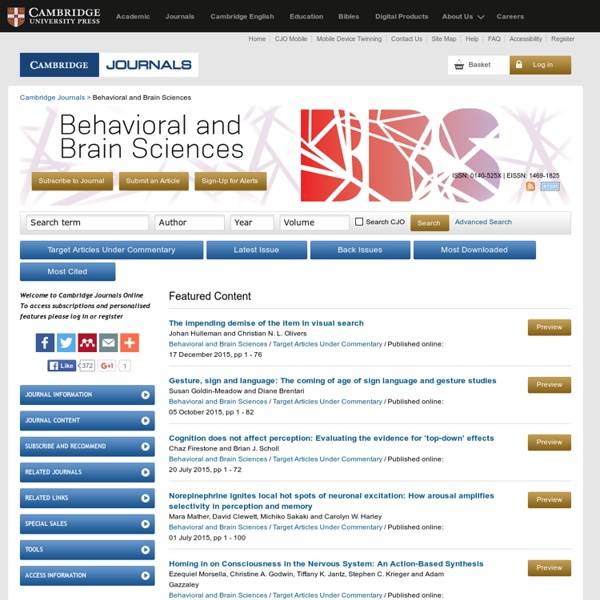



Nature Raphael Lis, Charles C. Karrasch, Michael G. Poulos, Balvir Kunar, David Redmond, Jose G. Barcia Duran, Chaitanya R. Badwe, William Schachterle, Michael Ginsberg, Jenny Xiang, Arash Rafii Tabrizi, Koji Shido, Zev Rosenwaks, Olivier Elemento, Nancy A.
Neuroscience Neuroscience is the scientific study of the nervous system.[1] Traditionally, neuroscience has been seen as a branch of biology. However, it is currently an interdisciplinary science that collaborates with other fields such as chemistry, computer science, engineering, linguistics, mathematics, medicine and allied disciplines, philosophy, physics, and psychology. It also exerts influence on other fields, such as neuroeducation[2] and neurolaw. The term neurobiology is usually used interchangeably with the term neuroscience, although the former refers specifically to the biology of the nervous system, whereas the latter refers to the entire science of the nervous system. Because of the increasing number of scientists who study the nervous system, several prominent neuroscience organizations have been formed to provide a forum to all neuroscientists and educators. History[edit] The study of the nervous system dates back to ancient Egypt. Modern neuroscience[edit] Human nervous system
Science General Systematic endeavour to gain knowledge Science is a systematic discipline that builds and organises knowledge in the form of testable hypotheses and predictions about the universe.[1][2] Modern science is typically divided into two or three major branches:[3] the natural sciences (e.g., physics, chemistry, and biology), which study the physical world; and the social sciences (e.g., economics, psychology, and sociology), which study individuals and societies.[4][5] Applied sciences are disciplines that use scientific knowledge for practical purposes, such as engineering and medicine.[6][7][8] While sometimes referred to as the formal sciences, the study of logic, mathematics, and theoretical computer science (which study formal systems governed by axioms and rules)[9][10] are typically regarded as separate because they rely on deductive reasoning instead of the scientific method or empirical evidence as their main methodology.[11][12][13][14] Etymology History Early history Middle Ages Awards
Physics Various examples of physical phenomena Physics is one of the oldest academic disciplines, perhaps the oldest through its inclusion of astronomy.[8] Over the last two millennia, physics was a part of natural philosophy along with chemistry, certain branches of mathematics, and biology, but during the Scientific Revolution in the 17th century, the natural sciences emerged as unique research programs in their own right.[b] Physics intersects with many interdisciplinary areas of research, such as biophysics and quantum chemistry, and the boundaries of physics are not rigidly defined. New ideas in physics often explain the fundamental mechanisms of other sciences[6] while opening new avenues of research in areas such as mathematics and philosophy. Physics also makes significant contributions through advances in new technologies that arise from theoretical breakthroughs. History Ancient astronomy Astronomy is the oldest of the natural sciences. Natural philosophy Classical physics Modern physics
Biology History The objects of our research will be the different forms and manifestations of life, the conditions and laws under which these phenomena occur, and the causes through which they have been effected. The science that concerns itself with these objects we will indicate by the name biology [Biologie] or the doctrine of life [Lebenslehre]. Although modern biology is a relatively recent development, sciences related to and included within it have been studied since ancient times. Scholars of the medieval Islamic world who wrote on biology included al-Jahiz (781–869), Al-Dinawari (828–896), who wrote on botany,[8] and Rhazes (865–925) who wrote on anatomy and physiology. Biology began to quickly develop and grow with Anton van Leeuwenhoek's dramatic improvement of the microscope. The discovery of the physical representation of heredity came along with evolutionary principles and population genetics. Foundations of modern biology Cell theory Main article: Cell theory Evolution Genetics